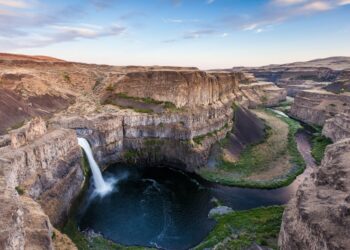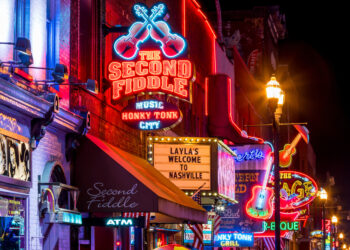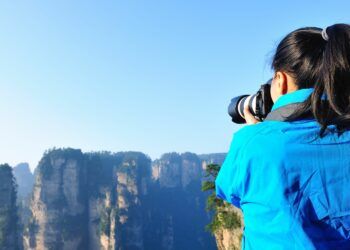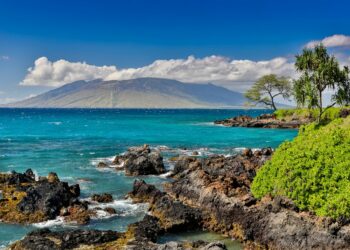Fiji’s tropical South Pacific nation has over 300 tropical islands with beautiful beaches and excellent surfing, coral reefs with spectacular diving and snorkelling, mountains and rainforests with incredible trekking and birdwatching, and a mixture of fascinating local cultures. Fiji also hosts plenty of affordable beach resorts and golf courses.
Melanesian islands are centrally located in the middle of the South Pacific; Fiji consists of an archipelago of 322 islands and many more islets, of which 106 are inhabited. Most of the people live on the two main islands of Fiji, Viti Levu and Vanua Levu.
Affiliate Disclaimer: Our blog posts may contain affiliate links. If you make a purchase through these links, we receive a modest commission at no extra cost to you. These commissions help us fund our team of travel writers, allowing us to continue providing you with the latest travel news, tips, and inspiration. Your support keeps this blog alive and thriving, and we appreciate it immensely. Thank you!
Fiji is one of the most popular tourist destinations, one of the leading airline hubs in the South Pacific region, and a popular stopover place for travel between North America and Australia or New Zealand.
Sights and activities in Fiji
Fiji has majestic coral reefs that attract visitors interested in diving in Fiji, and also, snorkelling in Fiji is some of the best in the world. In addition, there are several white sand beaches perfect for relaxed beach holidays.
The larger islands of Fiji have rugged volcanic interiors with rainforests, waterfalls, stunning landscapes and remote villages that are excellent for trekking in Fiji, some possibilities for rafting, and archaeological sites and nature reserves.
Fiji’s rich multinational culture offers plenty of things to awe, from traditions and food to crafts and music, and its waters are excellent for sailing in Fiji. There are also several spectacular golf courses in Fiji.

Vit Levu
Viti Levu, the most significant island, is home to Fiji’s largest cities and international airports. Situated on the sunny West coast of Viti Levu, Nadi is the hub of tourism in Fiji, with the international airport, beach resorts, fishing charters and boat and air connections to the nearby Mamanuca and Yasawa islands.
Lautoka
Fiji’s second-largest city, Lautoka, is nearby, with its Garden of the Sleeping Giant and easy reach to the Koroyanitu National Heritage Park in the island’s mountainous interior. On the south side of Viti Levu, the Coral Coast area offers beaches, a famous zoo and archaeologically critical Sigatoka sand dunes.
Suva
The multicultural capital city Suva in the Southeast has an excellent history museum and botanical gardens and the best possibilities for affordable shopping in Fiji, some nightlife, and the lush rainforests of Colo-i-Suva Forest Park nearby, attract hikers and birdwatchers.
Rakiraki
The colonial town of Rakiraki on the North coast has a boat connection to the small paradise-like Nananu-i-Ra island with white-sand beaches and excellent possibilities for diving, snorkelling and windsurfing.
Mamanuca Islands
The small Mamanuca islands on the Northwest coast of Viti Levu are renowned for their superb beaches and surfing, sailing, snorkelling and diving possibilities. In contrast, the Yasawa Islands to the North have many beautiful natural and cultural sites and the best opportunities for kayaking in Fiji.
Vanua Levu
Vanua Levu, the second biggest island in Fiji, has a predominantly Indian culture and some excellent diving and birdwatching spots, especially in the island’s Southeast.
Taveuni
The third-largest island, Taveuni, is famous for its green nature, some of the best birdwatching in Fiji, as well as excellent diving in Fiji, as well as being one of the few places that are crossed with the international date line of 180 degrees Longitude.
Bouma National Heritage Park in Taveuni is renowned for its ecotourism and trekking possibilities. The fourth-largest island, Kadavu, has famous dive sites, and Ovalau island has plenty of colonial history, including the old capital of Fiji.
Rotuma
Finally, the remote island of Rotuma has a Polynesian culture, and the island groups of Lau, Moala and Lomaiviti all have beautiful beaches and coral reefs off the main tourist routes.

Practical tips and information you need when travelling in Fiji
Climate
Fiji has a warm tropical marine climate with slight variation throughout the year. There is a cooler (but still warm) dry season from May to October, and a warmer rainy season from November to April, with occasional tropical cyclones.
Rainfall is more significant on the windward side of the bigger islands, whereas the leeward sides have a sunnier and drier climate.
Transportation
Travelling to Fiji is done mainly by air. There are two international airports in Fiji, of which Nadi receives most of the flights to Fiji from abroad.
The capital city, Suva, also has an international airport, and there are many local airports and airstrips around the islands. You can also travel to Fiji by cruise boat or private yacht. In addition, Fiji has good domestic transport connections, making it an easy country to travel in.
Several local airlines offer flights to Fiji’s all main islands and tourist destinations, mainly from Nadi. The larger islands have a good bus network of local and express buses, also shared taxis are also offered.
There are frequent ferry connections between all major islands and from Nadi to the smaller Mamanuca and Yasawa islands, and plenty of local boat connections between the smaller islands. Taxis and car rentals in Fiji are also available in the main tourist areas.
Services
There is a wide range of hotels in Fiji, from luxurious private island resorts to small and cheap rural guesthouses and restaurants in Fiji that represent many styles and price ranges, with plenty of Indian and local Fijian dishes, fine dining and fast food. However, nightlife options are limited to the most significant towns and resorts.
Mixed culture
The majority of Fijians are of Melanesian origin. Still, a significant number of people have arrived in Fiji from India in colonial times and small amounts of people of Polynesian, Micronesian, and European origin. All of these groups have influenced the culture in Fiji and also have their unique traditions.
English is an official language in Fiji and is spoken by most people in towns and tourist areas, whereas it is not always understood in more remote islands.
Fiji has a highly traditional and religious society, and you should dress modestly and ask permission to enter small villages or sacred sites. Sharing is an essential principle in Fijian culture. Keep this in mind and guard your belongings in rural areas, as otherwise they might be “borrowed”.
Safety
Fiji is free of poisonous land creatures and most tropical diseases and is a relatively safe destination. However, crimes such as robbery and theft happen mainly in Suva and Nadi, and the political situation is unstable with ethnic tensions and military coups. Luckily, the main tourist areas in Fiji are situated far from the political strife of Suva, where walking around at night is discouraged, and any political gatherings should be avoided.











